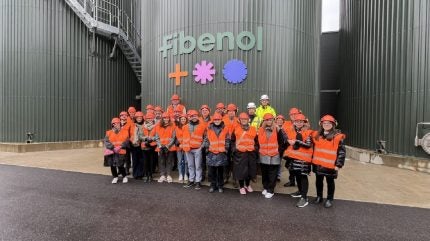
The European REDYSIGN Project, funded by CBE JU and coordinated by Tecnalia, has completed its first year, marking a milestone in the development of a circular biobased alternative for packing fresh meat.
The project aims to create a recyclable and smart fibre-based packaging (FBP) solution using lignocellulosic materials derived from wood.
During the first year, the project has seen steady progress across multiple workstreams.
Notably, advancements have been made in wood fibre processing, with efforts to lower energy consumption and reduce water usage through high consistency functionalisation of fibres.
Additionally, promising results have been achieved in the biobased product formulation for film-tray adhesion.
Significant strides have also been made in improving the traceability of the new FBP.
This resulted in three major milestones, including testing of spoilage sensor materials and substrates, setting up detection for traceability markers and contaminants, and initial identification markers for sorting efficiently.
The project’s focus on environmental impact is evident through the action plan to assess REDYSIGN innovations using a life cycle assessment (LCA).
Technological partners have defined process flows for each innovation and an initial screening of substances for manufacturing phase chemical data availability was conducted along with the establishment of a baseline for LCA hotspot analysis.
This will serve as a reference to define environmental impact categories and compare them with new packaging solutions.
A recent initiative within the project includes developing questionnaires for life cycle inventories, with mass and energy data collection currently underway.
As expressed by the consortium, these achievements highlight the commitment of the partners to develop sustainable packaging solutions through partnerships.
The third Consortium Meeting in Tallinn, Estonia, was held on 9-10 October 2024.
This brought together all partners to review progress over the past six months, discuss key takeaways, and define future steps.
Specific thematic sessions were organised to address current challenges and align strategies with industrial requirements.



